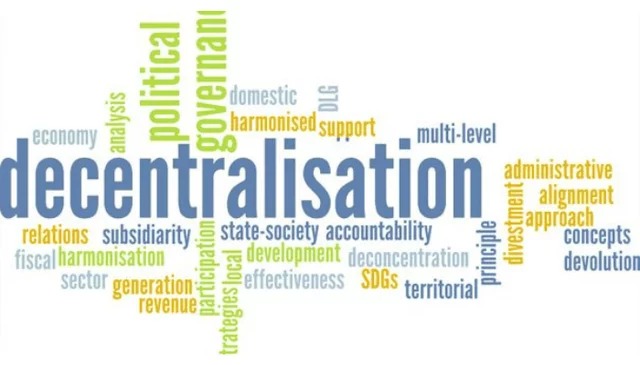
The “FG orders states to open CBN accounts for LGAs” — Moves to enforce Supreme Court judgement on financial autonomy & fiscal decentralisation
The federal government has mandated all 36 states to open and operate dedicated bank accounts with the Central Bank of Nigeria (CBN) for each of their local government areas (LGAs), numbering about 774, in a move aligned with ongoing efforts to implement full financial autonomy at the grassroots level and achieve fiscal decentralisation.
A circular conveying the directive was recently issued to state governments by the Office of the Accountant General of the Federation. Ratified at the most recent Federation Accounts Allocation Committee (FAAC) meeting, the directive targets the direct disbursement of statutory allocations to local governments in consonance with constitutional provisions.
According to the circular, the signatories to each of the 774 LGA accounts will be the local government chairman and the director of administration and finance. This follows the July 2024 judgement of the Supreme Court, which held that it is unconstitutional for state governments to intercept or withhold funds allocated to local government councils. The court, in a decision delivered by Justice Emmanuel Agim, emphasised that Section 162(3) of the Constitution mandates the direct transfer of local government funds to democratically elected councils.
The apex court’s ruling declared that local governments are entitled to receive their allocations directly from the Federation Account, reinforcing the principles of fiscal decentralisation, financial autonomy, and grassroots governance. The federal government’s renewed stance on local government autonomy comes amid widespread concern over how some state governments manage LGA funds, with reports accusing states of misappropriating allocations and undermining service delivery at the grassroots.
Recall that on July 11, 2024, Nigeria’s Supreme Court delivered a landmark judgement affirming the financial autonomy and independence of the 774 Local Government Areas (LGAs) recognised under the 1999 Constitution. This ruling means that, effective immediately, all LGAs’ allocations from the federation account will be credited directly to the LGAs, replacing the previous system where funds were routed through the states. This ruling, delivered by Hon. Justice Emmanuel Agim, marks a significant shift in the governance oversight of LGAs.
Nigeria operates as a federation with three distinct tiers of government: the federal government at the top, state governments in the middle, and local government at the grassroots. Section 162(6) of the 1999 Constitution created a joint state/local government account, yet this provision failed to deliver anticipated benefits, leading to calls for change. Hon. Justice Agim’s ruling mandates that remittances from the federation account be sent directly to the local governments, bypassing state control.
Before this landmark judgement, states and LGAs operated a joint account where the states spent funds on behalf of LGAs, awarded contracts without LGA input, and handled payments. This often led to inefficiencies, delayed salaries for local government staff, and neglected essential services like healthcare, roads, electricity, potable water, security, and education. These issues have significantly undermined good governance and best practices, which must now be urgently addressed.
I wish to applaud President Bola Ahmed Tinubu, GCFR, for his unwavering support for the rule of law and for providing the enabling environment that allowed the judiciary to make this landmark decision. The desire to address rising challenges at the grassroots may have prompted the push to strengthen the independence structure, fiscal decentralisation, governance oversight, and financial autonomy of the third tier of government.
With this historical judgement, it is unconstitutional for any state to receive, withhold, or spend funds meant for LGAs. The learnt jurist affirmed this, guaranteeing the independence of local government administration in Nigeria. Going forward, LGAs will receive their allocations directly from the federation account, ensuring financial autonomy.
Financial autonomy means managing one’s financial affairs independently without external control. It involves the freedom to receive and disburse funds to achieve financial objectives and meet responsibilities.
The potential benefits of this recent ruling on LGAs’ financial autonomy include:
Responsive and inclusive governance:
Financial autonomy, if closely monitored, will foster governance structures that promote good governance and national development.
Transparency and accountability:
Autonomy encourages transparency and accountability in meeting grassroots needs, upholding democratic principles, and building public trust.
Civic engagement:
It creates space for participatory governance, promoting civic involvement and responsibility.
Efficient resource allocation:
Autonomy supports effective resource allocation, minimising wasteful spending through closer oversight. Local councils’ financial independence will prioritise local activities.
Self-sufficiency:
It will promote self-sufficiency and financial autonomy at the grassroots level, strengthening local economies.
No country can advance meaningfully without good governance practices that incorporate financial autonomy and fiscal management across federal, state, and local governments. When leaders embrace good governance principles, it generates positive impacts on national development. It is our collective responsibility to demand good governance from those in authority.
Fiscal decentralisation, financial autonomy, and good governance are inseparable triplets. This is a call to all state governors to grant LGAs full independence and financial autonomy, as it will enhance governance across all levels, uphold democratic values, and promote long-term national development.
